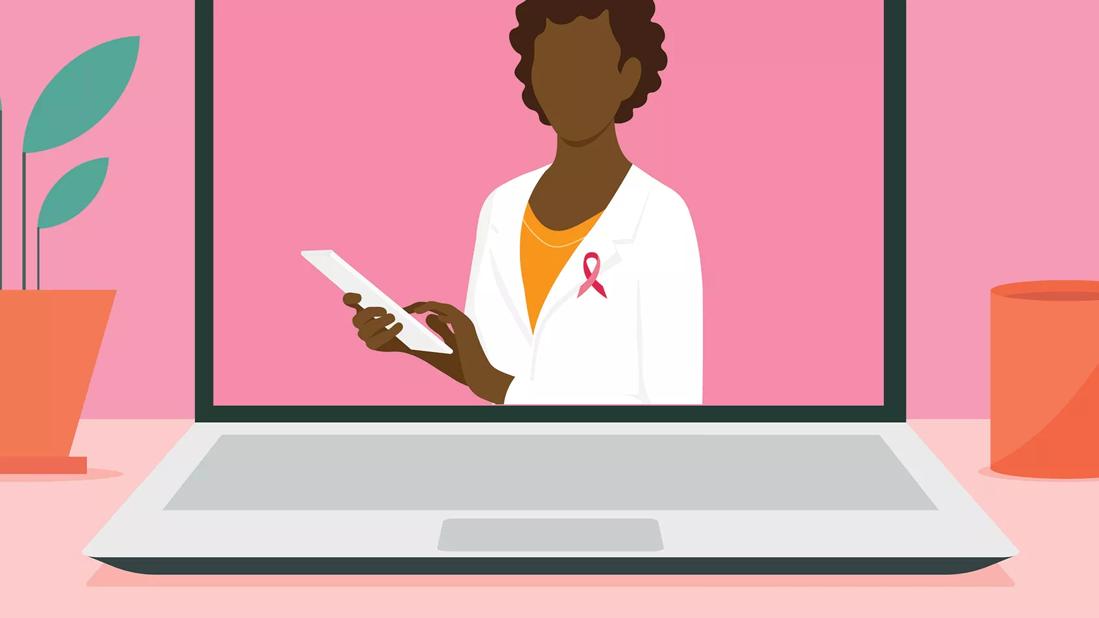Learn about BRCA and other genes that raise the risk of breast cancer

Image content: This image is available to view online.
View image online (https://assets.clevelandclinic.org/transform/7dc8d531-ba0e-42b1-8587-92aae4bcbcbb/GeneticTestingBreastCancer-1268626091-770x533-1_jpg)
An illustration of computer screen with a doctor wearing a breast cancer ribbon
Breast cancer is the most common cancer in women after skin cancer — and up to 15% of people with breast cancer have a genetic or inherited cause for the disease.
Advertisement
Cleveland Clinic is a non-profit academic medical center. Advertising on our site helps support our mission. We do not endorse non-Cleveland Clinic products or services. Policy
Researcher Charis Eng, MD, PhD, explains what you need to know about breast cancer genes and genetic testing.
The term “breast cancer genes” means genes that, when altered (mutated), increase your risk of getting breast cancer. These gene mutations shut down some of your natural cancer-fighting genes. When you don’t have your full army of genes fending off cancer, your risk of certain cancers goes up.
“BRCA1 and BRCA2 are the most common breast cancer genes when mutated, followed closely by PTEN mutations,” says Dr. Eng. “But several other breast cancer gene mutations exist. We know of at least 14 different genes right now, and we are currently exploring several others, too.”
These gene mutations aren’t limited to breast cancer risk. Some of these gene mutations may also increase the risk of:
“Breast cancer gene mutations aren’t common in the general population,” Dr. Eng says, “but they are common in people who have breast cancer. About 10% to 15% of people with breast cancer have one of the breast cancer gene mutations.”
You can inherit these gene mutations from either of your biological parents, and the cancers they’re linked to can affect both men and women — so consider all your relatives when thinking about your family history.
Advertisement
Genetic testing is the only way to know whether you have a breast cancer gene. These blood tests check for BRCA1 and BRCA2, as well as other known breast cancer genes.
If you have already been diagnosed with breast cancer, you may need genetic testing if you:
If you haven’t been diagnosed with breast cancer, consider genetic testing if:
Genetic tests are helpful for people with risk factors, but not everyone needs them.
“Testing everyone in the general population would be like trying to find a needle in a haystack,” Dr. Eng says. “Most people would get negative results. And right now, the world doesn’t have enough geneticists to see all those patients and do a follow-up. Knowing your family history is important because it tells us who needs to be tested or if you need to be tested.”
If your doctor finds that you’re at risk for hereditary breast cancer, they will refer you to a genetics professional, such as a genetic counselor, for genetic evaluation and pre- and post-test genetic counseling. Then, your blood is drawn and sent to a clinical lab for genetic analysis.
A geneticist (genetics expert) reads your blood test results and follows up with your provider. If you have a positive result, you’ll meet with your genetic counselor to discuss next steps for your care.
Having a positive genetic test result doesn’t mean you’ll get cancer. It means you have a higher risk of getting breast cancer than people without the mutation.
Consider these statistics:
Advertisement
Even if you get tested and get a negative result, don’t skip mammograms or other health screenings, and continue to follow the American Cancer Society’s guidelines.
“Most cases of breast cancer aren’t hereditary,” says Dr. Eng. “A negative result means you don’t have the known gene mutations for breast cancer. But you can still get breast cancer.”
A positive result for breast cancer genes can be difficult to deal with. But you can use this information to your advantage.
“If we know you have a breast cancer gene alteration, we can take extra steps to catch cancer early, when it’s most treatable,” Dr. Eng says. “Your providers can perform enhanced screenings starting at an early age, usually 25 or 30, depending on the gene. Knowledge is power.”
Advertisement

Sign up for our Health Essentials emails for expert guidance on nutrition, fitness, sleep, skin care and more.
Learn more about our editorial process.
Advertisement
Research consistently shows that soy-based foods do not increase your risk of breast cancer
Breast cancer’s growth rate depends on its type, stage, grade and more
Breast cancer typically spreads to your lymph nodes first, and can travel to your lungs, bones and more
Many breast cancer survivors have babies — talk to your provider before treatment to understand all of your options
A second opinion can confirm your diagnosis and treatment plan and help you feel more confident about what’s next
HER2-low is less aggressive than HER2-positive and HER2-negative, but the new designation allows for targeted therapies that may be helpful
Taking care of yourself extends beyond symptom management and includes things like passion projects and meaningful moments
Support groups, financial assistance and survivorship programs are all readily available
Prioritize your health by managing stress, strengthening your social connections and getting quality sleep
Bolsters, blankets, pillows and blocks can offer extra support, stability and comfort
Allergies, postnasal drip, asthma or reflux could be to blame for a cough that won’t quit